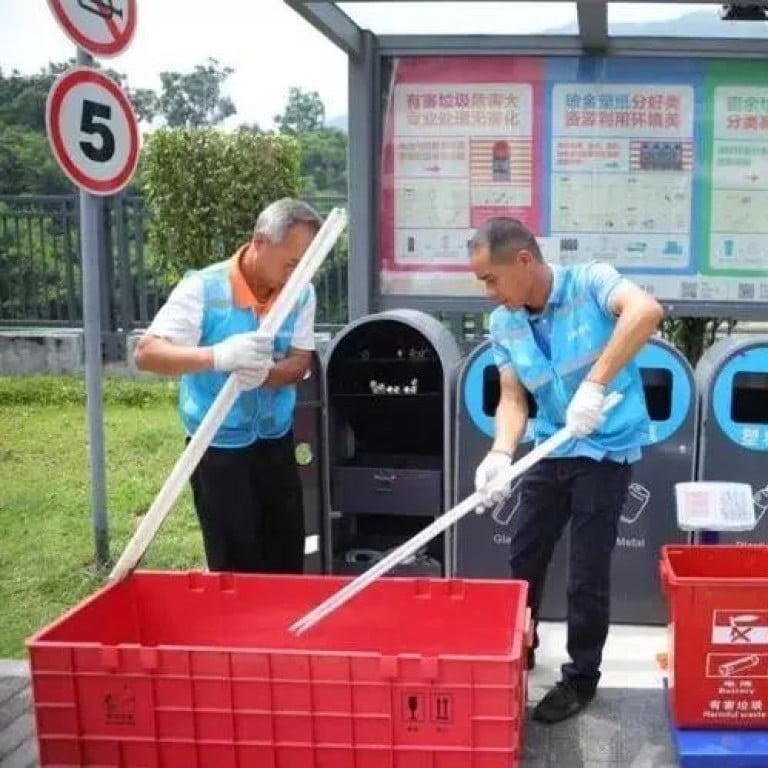
Reward: Shenzhen offers cash for top trash sorters
- Southern city will launch its new waste management programme next month, promising money for the most active adopters – as well as fines for offenders
In a first for China, the southern Chinese city of Shenzhen will offer rewards to “good waste sorters” when it launches its new rubbish collection programme next month.
Families, individuals, residential zones and companies that actively and effectively take part in waste sorting will be given cash and recognised as a “green residential compound” or “active individual”, according to a notice issued by the Shenzhen Urban Administration and Law Enforcement Bureau on Thursday.
“To promote the public’s active participation in waste sorting, 5,000 families, 1,000 individuals, 500 residential compounds and an unlimited number of companies will be rewarded each year,” the notice said.
The eco-fighter tackling the scourge of rubbish on China’s beaches
Families will be awarded 2,000 yuan (US$282), individuals 1,000 yuan, compounds up to 300,000 yuan and company directors who are responsible for waste sorting 1,000 yuan each, according to the notice. A total of around 62.5 million yuan in total will be handed out but it is not yet clear what the standards are for “good waste-sorting behaviour”.
Shenzhen’s waste sorting regulations divide rubbish into four categories: recyclables, hazardous, perishables and others. For the past year, the city has been advertising the programme on public transport and residential compounds, as well as gradually changing waste bins.
Also in other cities, individuals who actively take part in waste sorting can receive points for the garbage they sort, and trade points for goods such as rice and oil.
In Shanghai, which launched waste sorting in July, volunteers stand in front of rubbish bins to help residents sort the trash. Prices of small sortable rubbish bins for home use have surged on e-commerce platforms, while bin makers are also developing smart models in response to new needs.
China generated 210 million tonnes of municipal solid waste in 2017, 48 million tonnes less than the United States, according to the World Bank’s What a Waste database.
As the world’s second-biggest waste producer, China plans to extend waste sorting to 46 major cities by the end of 2020, and implement it throughout the country by 2025.

.jpg?itok=H5_PTCSf&v=1700020945)